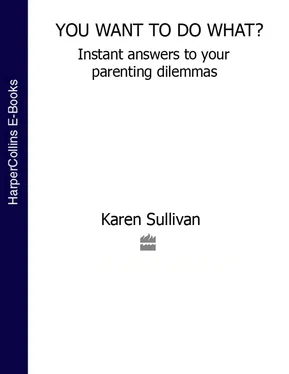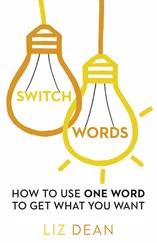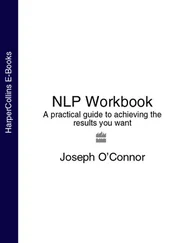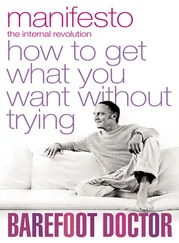Authoritarian
Authoritarian or extremely strict parents are highly controlling. They dictate how their children should behave, and stress obedience to authority and discourage discussion. These parents are demanding and directive, they expect their orders to be obeyed and do not encourage give–and-take. They have low levels of sensitivity and do not expect their children to disagree with their decisions.
Authoritative
Authoritative or moderate parents set limits and rely on natural consequences to help children learn by making their own mistakes. Authoritative parents explain why rules are important and why they must be followed. They reason with their children and consider the children’s point of view even though they might not agree. These parents are firm, with kindness, warmth and love. They set high standards and encourage children to be independent.
Permissive
Permissive or indulgent parents are accepting and warm but exert little control. They do not set limits and allow children to set their own rules, schedules and activities. They do not demand the high levels of behaviour required by authoritarian or authoritative parents.
Uninvolved
Uninvolved parents demand little and respond minimally to their offspring. In extreme cases, this parenting style might entail neglect and rejection.
Research has found that the most well-adjusted children, particularly in terms of social competence, had parents with an authoritative, moderate parenting style. These parents are able to balance clear high demands with emotional responsiveness and respect for their child’s autonomy. Both authoritarian and authoritative parents have high expectations of their children and use control, but the overly strict parent expects the child to accept parental judgements unquestioningly and allows the child little freedom of expression. Children of overly strict parents are apt to be reliant on the voice of authority and to be lacking in spontaneity. In contrast, the authoritative parent permits the child enough freedom of expression so that he or she can develop a sense of independence. Permissive parents make few demands and their children have been found to have difficulty controlling their impulses, are immature and reluctant to accept responsibility.
Be prepared to listen to your child. While pre-teens and teens have an amazing capacity to exaggerate and to dramatise, there may be some truth or basis to their argument. If your child is, genuinely, the only one in his class not allowed to walk to school alone or to have a mobile telephone, ask yourself why. Challenge your own thinking and assess your reasons. If your daughter wants to have her ears pierced and you’ve said she has to wait until she is thirteen, ask yourself why. Because that was what you had to do? Is that a relevant argument? Children are not always right, but they aren’t always wrong either.
However, issues and demands are not always straightforward. In many cases there are legal implications and children also have well-defined rights. For example, your 14-year-old daughter is not legally allowed to have sexual intercourse until she is sixteen, but she can have an abortion without any consultation with or permission from her parents well under that age. At sixteen she can buy cigarettes and smoke them to her heart’s content; she can even leave home legally, but she can’t vote and she can’t have a glass of wine with her cigarette unless she’s in the family home or accompanied by an adult (and a meal) in a pub or restaurant. Your 12-year-old son can have his ear pierced and open a bank account; he can make decisions regarding his own health care, but you can be charged with neglect if you leave him alone in the family home and something goes wrong.
Peer pressure
Not only are our children subject to peer pressure, which often guides their demands and expectations, but parents are also at the mercy of pressure from peers. If every parent at your 14-year-old’s Catholic school has decided that it isn’t necessary for their child to attend Sunday mass, how do you weigh this up with what you believe is right? If all the parents in your son’s social group are allowing them to take the train up to watch the football finals at a national stadium, are you being ‘precious’ and overly cautious by objecting? If the majority of your children’s friends are not given a curfew, does that mean that your child shouldn’t have one either? If other parents do not question spending of pocket money or how children spend their leisure time, if they do not encourage any responsibility around the house, or make demands upon their children’s time for family outings or gatherings, should you follow suit? Are you making a mistake by sticking to your guns and parenting by instinct or belief?
It’s not just kid pressure that affects the way we make our decisions; we are guided by what other parents do and by what they allow. It’s not surprising that most parents worry constantly about whether they are doing the right thing, or creating the best environment for their children, and giving them the best opportunities. There is a level of insecurity that most of us feel – and when what we believe in is challenged by the media, our children, and other parents, it’s not surprising that confusion ensues, and we make allowances or concessions with which we are not always happy. We don’t want our children to be left behind in any sense, and unhappily, many of us spend a lot of time looking over our shoulders to work out if we are doing and allowing the same things as everyone else.
Finding a balance
There are ways to negotiate compromises with our children – to parent according to our own beliefs, to protect our children and to ensure that they have a safe, healthy and happy childhood, while at the same time giving them room to grow and develop, and to become independent and responsible adults.
That’s where this book comes in. We’ll look at all the important issues and aspects of raising a child from the age of about eight through to the day they leave home. In many cases, there are legal points that will guide your decision or thinking. In others, there is clear research that shows the impact of the choices we make for our children, and the results of what we might allow. Children’s charities and health and religious organisations offer advice and guidelines where legislation doesn’t exist – in the case of leaving children alone, for example, or dealing with peer pressure, bullying or health problems.
We’ll look at what happens to our children at various ages, both physically and emotionally, and what they are capable of doing and, indeed, mature enough to do, at each stage. Every child is different, and each matures at his or her own speed. What is right for one child may simply be inappropriate for another. One child may be sensible enough to walk to school at age seven, while his younger brother may have to wait another year or so. A shy, under-confident child may baulk at taking the train into town with his mates, while his more confident sister could negotiate the journey with ease at the same age. Knowledge of your children is probably the most important factor in making any decision regarding the way you parent.
There will be areas of your child’s life and lifestyle about which you feel very strongly. You may be a stickler for working hard at school or believe that children should have a role in the household, undertaking age-appropriate chores and earning their keep. You may have a faith or religion that dictates many aspects of what your child can and can’t do, and some of these things simply cannot be compromised. An important part of bringing up children is sharing our beliefs and mores, and passing on pride in and understanding of our various cultures and backgrounds. This is to be encouraged, no matter how resistant a child may be to doing things ‘your way’.
Читать дальше












